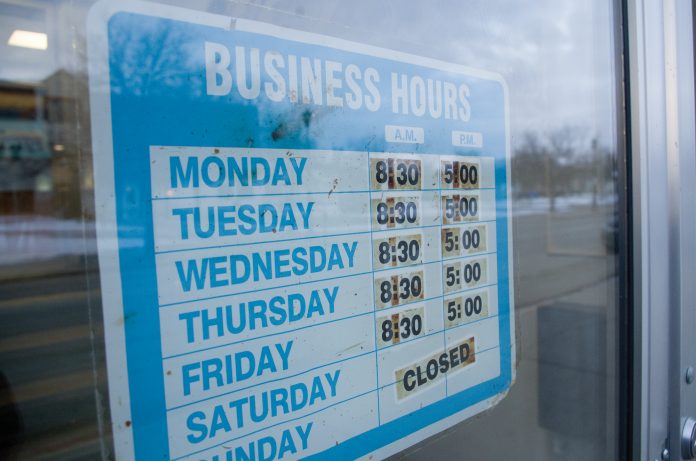A new survey by the Canadian Payroll Association (CPA) shows Saskatchewan workers faring the worst nationally when it comes to economic indicators such as savings and debt.
The survey, released today, also shows Saskatchewan employees have one of the lowest outlooks on the future of their province’s economy.
The tenth annual survey found that half of Saskatchewan employees live paycheque to paycheque, the highest proportion nationally.
It also found that only 35 per cent of Saskatchewanians think their local economy will improve, compared to 43 per cent of Manitobans and 60 per cent of Albertans.
Workers in this province are also not saving as much as they should. One in four said they couldn’t come up with $2,000 within a month for an emergency expense, compared to a rate of one in five nationally. Almost half — 44 per cent — of Saskatchewan employees indicated they spend all or more of their net pay, compare to 35 per cent nationally. Two-thirds of Saskatchewan workers said they save 10 per cent or less of their earnings, well below the recommended savings levels.
Overall, 94 per cent of national respondents and 95 per cent of Saskatchewan respondents said they carry debt. Half of provincial respondents said they feel overwhelmed by the level of debt, and 34 per cent said their debt increased over the past year. Still, about two-thirds were able to save more than they did last year.
“Despite the long-term risks of undersaving, carrying high debt and their perception of an improved financial picture, working Canadians are not waking up to the harsh realities of what could happen in a sudden shift of financial circumstances,” the CPA said.
These realities concern Peter Tzanetakis, CPA president.
“We would have hoped to see in the survey results that Canadians would do more to alleviate their debt and take control of their financial situation in strong economic times,” he said in a press release.
“Now is the time to pay down debt, contribute to retirement savings and take control of your financial future. Many Canadians seem to be complacent and are still not focused on the big picture.”
The report also detailed the shifting priorities of Canadian workers. For the first time in ten years, the survey indicated that employees are more concerned with work/life balance (33 per cent) than on earning higher wages (26 per cent). Millennials in their 30s led this trend, with 38 per cent ranking work/life balance as the most important.
But when asked about the best way to improve financial well-being the number one response is higher wages, with one-quarter of Canadian workers and one-fifth of Saskatchewan workers indicating that to be the case. Only 19 per cent of Canadian workers and 21 per cent of Saskatchewan respondents said spending less would help more.
Over half of all respondents said they have only saved one quarter or less of what they will need to retire, and the provincial target retirement age has gone up to 62 from 59. Almost half (43 per cent) of Saskatchewanians indicate they will have to work longer than they planned to five years ago, compared to 32 per cent nationally.
“Ultimately, the results illustrate that in the event of higher interest rates, a market downturn or other economic factors beyond their control, working Canadians would struggle to recover and could face severe implications,” the report said.
“Employers should take note: currently 46% of employees say financial stress is impacting their workplace performance; this figure could get much worse.”
“Our concern with the survey and the reason e do it is to highlight that individuals have to focus on managing their debt and trying to increase their savings,” said Frank Lilley, past chair of the CPA.
“Unfortunately, when you look at all the factors combined, (Saskatchewan) seems to be the worst cross Canada.”
Lilley said payroll professionals can help workers find better ways to save their money. He pointed as well to online advice posted at payroll.ca.
“Certainly, employees can consult their payroll professional to see how their employer offers them the ability to save – there may be a pension plan, group RRSP, or savings plan, share purchase, or split your deposits so some guest to chequing, some goes to savings,” he said.
“There are some options payroll can help with.”
Research for the survey was conducted through an online survey between June 22 and August 1 of this year using a convenience sampling methodology. Employees were surveyed from a variety of sectors. The survey is consistent with a margin of error of plus or minus 1.38 per cent, 19 times out of 20, but since a non-probabilistic method was used, a definitive margin of error is unavailable.


